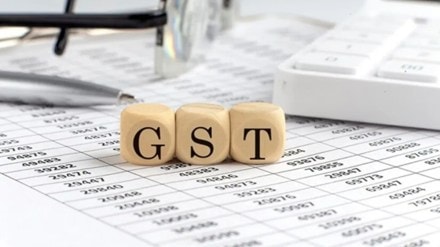The 56th meeting of the GST Council, starting today, is expected to take up one of the most significant reform proposals in recent years — a complete exemption of GST on life and health insurance.
If the proposal is approved, this could be announced as the Modi government’s promised ‘Diwali gift’ to the people of the country. The all-powerful GST Council’s meeting is scheduled for September 3-4.
The proposal is already backed by the Group of Ministers (GoM) on GST rate rationalisation. Exempting GST on life and health insurance premium will be part of the larger plan to scrap the multi-slab GST system and move towards a simpler two-tier structure of 5% and 18% rates.
Bihar Deputy Chief Minister and GoM Convenor Samrat Choudhary recently said that the panel favours exempting all individual life and health insurance premiums from GST.
“The GoM said that life and Health Insurance (for individuals) should be exempted from GST. Now the GST Council will decide,” Choudhary had said earlier.
Concerns over benefit transfer to policyholders
While the Centre is keen to exempt life and health insurance premiums from GST, some states have reportedly cautioned that the move will only serve its purpose if insurers actually pass on the benefit to policyholders.
There is a concern that insurance companies should not end up making windfall gains by retaining the tax benefit, while customers continue to pay the same premiums.
Here’s what experts have to say
According to Dinkar Sharma, Company Secretary and Partner at Jotwani Associates, “At first glance, a GST waiver appears to provide immediate relief to consumers by eliminating tax on the final product or service. However, under the structure of the Goods and Services Tax regime, such exemptions come with unintended consequences. The waiver denies businesses the ability to claim input tax credit (ITC) on the GST already paid on inputs.”
CA Mandar Telang, Secretary – Bombay Chartered Accountants’ Society (BCAS), says, “While it is important to wait for official clarification, one can note that historically the maintained certain exemptions for specific health and life insurance schemes, continuing practices from the service tax regime. From Rule 32(4) of the present GST valuation rules, it’s clear that in the case of life insurance policies, the intention is to levy tax only on that portion of the premium which is towards risk cover in life insurance and not towards the amount of premium which is allocated for investment/savings on behalf of the policyholder.”
It would be interesting to see if the gift of tax exemption covers all policies or only target-based policies, he added.
Why exemption may not always reduce prices
The denial of ITC is seen as the biggest challenge in ensuring that GST exemption truly benefits policyholders. Without ITC, insurers cannot offset the GST paid on inputs like technology, consultancy, or utilities, making those costs unrecoverable.
Dinkar Sharma explained, “Rather than reducing consumer prices, the exemption can lead to hidden cost escalation. Companies, particularly those with tight margins, may be compelled to embed these costs into the final price, thereby limiting or even negating the intended consumer benefit of the waiver.”
In other words, the waiver may create the illusion of tax relief, but the final premium could remain unchanged or even rise, depending on how insurers adjust to the loss of ITC.
According to Telang, given that the policy considerations are aimed at correcting the inverted rate tax structure, the probability of reducing the rate of tax on insurance policies from 18% to 5% instead of offering a full exemption appears to be less, for it may put the insurance companies at a disadvantageous position by leading to credit accumulation.
Lessons from past GST exemptions
The issue is not without precedent. Exemptions in sectors such as healthcare, education, fertilisers, and renewable energy have often led to price distortions, resulting in limited relief for consumers.
“Experience under the GST regime, as well as earlier tax systems, demonstrates that exemptions have rarely resulted in tangible consumer benefits,” Sharma said. “The lesson is clear: exemptions undermine the credit chain, distort pricing, and reduce transparency. Instead of outright waivers, a more effective strategy is to tax such goods or services at a concessional rate with full ITC availability.”
Revenue impact and the road ahead
If approved, the exemption is expected to cost the exchequer around ₹9,900 crore annually. The Centre has proposed covering both individual and family floater health insurance policies, as well as individual life insurance policies, along with reinsurance.
The final decision now rests with the GST Council, which will deliberate on the proposal in its meeting. With festive season around the corner and the Prime Minister already promising a “Diwali gift,” all eyes are on whether the Council will go ahead with the exemption.
